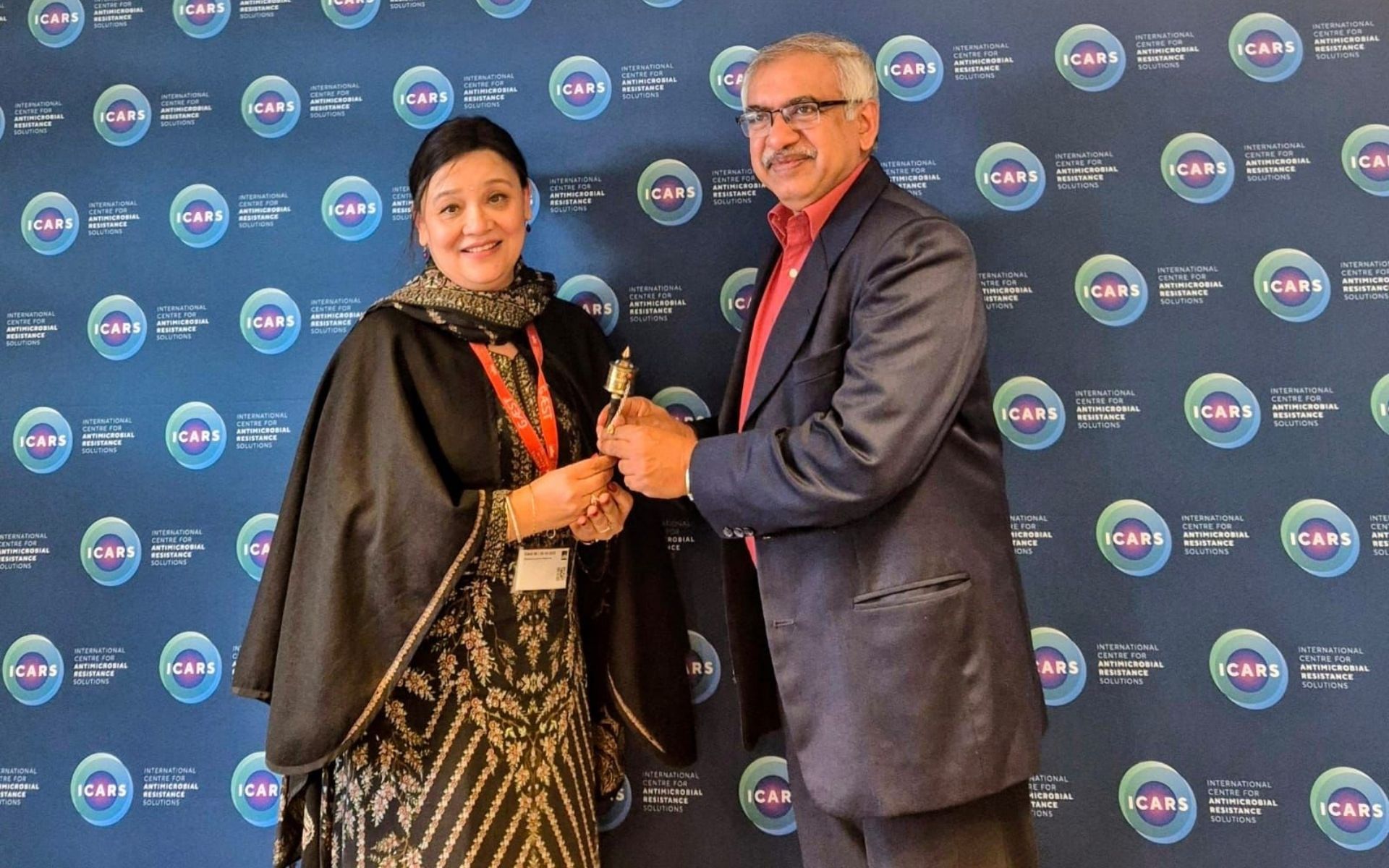
Kathmandu: The Ambassador of Nepal to Denmark, Sumnima Tuladhar, visited the International Centre for Antimicrobial Resistance Solutions (ICARS) in Copenhagen on 30 October.
The purpose of the visit was to learn about the partnership between ICARS and relevant institutions in Nepal in addressing Antimicrobial Resistance (AMR).
During the meeting, ICARS Executive Director, Prof. Dr. Sujith J. Chandy, and his team provided an overview of the Centre’s extensive global initiatives, which include supporting 60 projects across 28 countries and territories, engaging with over 170 partners, and mentoring 50 Master’s and PhD students. These efforts are dedicated to developing evidence-based, cost-effective, sustainable, and scalable solutions to combat AMR, with a particular focus on low- and middle-income countries (LMICs).
Ambassador Tuladhar conveyed her best wishes for ICARS’ ongoing project in Nepal, titled “Evaluating Biosecurity and Farmer Training to Reduce AMR and Climate Impacts in Poultry Farms in Nepal.” Launched in September 2025, the project is being implemented in collaboration with the Group for Technical Assistance (GTA), the Department of Livestock Services (DLS), and the Veterinary Standards and Drug Regulatory Laboratory (VSDRL).
Similarly, it aims to test affordable and scalable strategies to reduce AMR and mitigate climate impacts within Nepal’s poultry sector. The pilot project is expected to serve as a model for future collaborations addressing AMR and supporting the implementation of Nepal’s National Action Plan on AMR.
Furthermore, Ambassador Tuladhar commended ICARS for its pathbreaking work in generating global attention to AMR. She also highlighted the importance of integrating gender equity, environmental sustainability, and climate change considerations into AMR strategies, recognizing their interlinked significance in achieving sustainable global health outcomes.